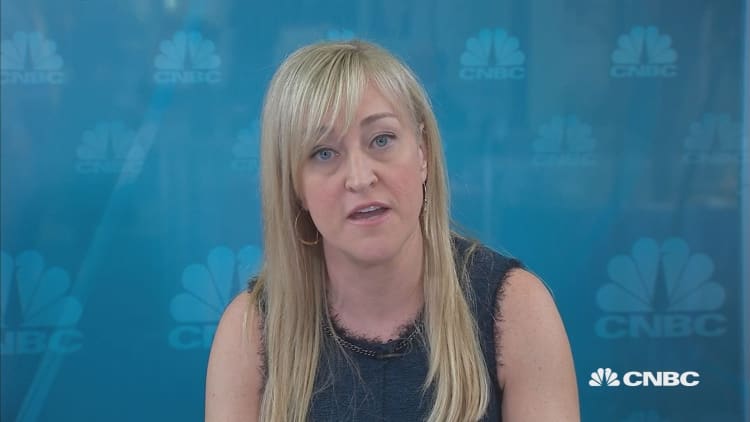For many women, financial security is one of the biggest considerations that factor in when deciding whether to stay in an unhappy marriage or divorce. As a result, a significantly large number of women stay in marriages that are unhealthy and even border on dysfunctional.
Various studies show that women are typically more stressed about money than men. According to PricewaterhouseCoopers' 2019 Employee Financial Wellness Survey, 65% of women and 52% of men said that financial matters cause them the most stress. Money is a top cause of stress for Americans, in general.
"For many, talking about money is more difficult than talking about sex — even in the therapy room," claims New York-based therapist Ann Springer. According to the American Psychological Association survey Stress in America: Paying With Our Health, the majority of Americans (64%) admit that money is somewhat or a very significant source of stress.
More from FA Playbook:
Social Security cuts would hit women hardest
How the new tax bill complicated divorce
When advisors have to break bad news to clients
The stress level around money is especially high for parents (77%), as they are financially squeezed by the rising cost of raising a child. The most recent report from the U.S. Department of Agriculture says that the average cost of raising a child from birth to age 17 is $233,610 in a two-parent, middle-income household with two children. (Note that this figure does not include college education, which can easily run upwards to $200,000 per child.)
Add on child-care costs if both spouses are working. It is no surprise that many couples feel pressed into having one spouse stay at home to take care of the children, as it makes more economic sense. More often than not, the wife decides to put her career on hold and stay home, contributing to the gender pay gap that still persists.
For many, the homemaker/breadwinner roles have an impact on whether to stay in or leave a bad marriage. Most women who are divorcing can no longer afford to stay at home long-term, and must re-enter the workforce, possibly at a much-reduced salary from what they are used to. A meager paycheck for hard work is not attractive to anyone.
The years spent out of the workforce can have a devastating impact on the earning potential of women. Having taken a pause in their careers to raise children, these women struggle to re-engage in a professional world that may not welcome them back. Those who can get a job often start at the very bottom rung, and it takes years and even decades to catch up to the salary they would have been earning if they had not stepped out. Knowing this, plus depending on their partner for food, housing, and other necessities of life, can sway a women to stay in a marriage that she would much rather leave.
On a personal note, this was the case with my grandmother.
She gave up her career as a bookkeeper to raise my father. Grandma loved being a stay-at-home mom, and she was a hero to me. Her love was never in short supply. However, putting her career on hold made leaving her unhealthy, toxic and abusive marriage a prohibitively difficult step to take. She admitted that her financial dependence on my grandfather tipped the scales of her decision to stay.
Understandably, women are concerned about how much of a financial loss would be created by a divorce, as the same income that once supported one household is required to support two. Add to this challenging financial reality legal fees, the uncertainty of how the assets and liabilities would be split, plus alimony and child support questions, and it is no surprise that some women decide to just endure their unhappy situation.
Power over uncomfortable feelings can begin with getting a clear financial picture.Ann Springertherapist
However, that is not what divorced women believe is best. In fact, a study by online legal marketplace Avvo revealed that the majority of divorced women (73%) did not regret their decision to end their marriage, and actually found themselves happier living the single life even though they were worse off, financially.
Francis Financial conducted a study on women, money and divorce in our Unveiling the Unspoken Truth white paper. More than 150 divorced women were interviewed and the results were extremely powerful. The most important message these formerly married women wanted to share with other soon-to-be divorced comrades was to get smart about money, so you know your choices.
Being in the dark about money can be costly. Spouses who handle all of the finances during their marriage have an advantage over those who do not. Awareness of everything about the assets owned, as a couple, is not simply an option – it is a necessity.
It is also important to understand the cost of everyday expenses, and what these might look like post-divorce. It is impossible to be fully confident that a divorce settlement is financially feasible without knowing how much money is being spent on a monthly basis and what the assets are.
"Money can be an emotional hot button, but feelings don't change the facts," said Springer, the therapist. "Power over uncomfortable feelings can begin with getting a clear financial picture."
The majority of respondents (64%) in the Francis Financial study said a financial advisor would have been helpful to them during their divorce.
"Deborah," who was married for 35 years, confided that she wished she "had had someone who would have helped me look at the entire financial picture."
Others shared that a financial planner would have been helpful to them because of their lack of financial aptitude, concerns about saving for retirement, fear of outliving their savings or the need to learn how to budget and spend wisely, as well as save for college and invest intelligently.
Finding the right advisor is essential. To that point, an experienced Certified Divorce Financial Analyst will show you the difference between alternative settlement options and advise you to the best asset division for you based on your age, taxes, income needs and risk tolerance.

This highly educated finance professional will also include the impact of differing alimony and child support scenarios on your lifestyle and budget, making sure that the divorce settlement allows your money to last as long as possible. Big questions concerning keeping the house, returning to work and the cost of expensive fees such as camp, medical expenses and private school, as well as college, for children should also be addressed.
Typically, a divorce financial professional works alongside your divorce lawyer, allowing them to focus on the legal issues, and the CDFA to focus on maximizing the financial outcome. The CDFA will take dozens of financial factors into consideration that will impact your financial future and empower you to reach a settlement with confidence.
It makes sense to take the time to find a reliable financial professional to guide you through these difficult times. The cost of making a financial mistake is too high to not hire the best financial expert possible. Financial mistakes during a divorce can last a lifetime.
— By Stacy Francis, president and CEO of Francis Financial






